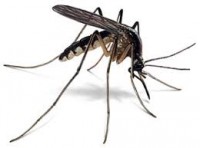West Nile Virus Prevention Efforts to Begin May 13
 To eliminate breeding sites for mosquitoes that can carry West Nile Virus, the Westchester County Department of Health will start West Nile Virus prevention efforts on Monday, May 13, by checking catch basins throughout the county for standing water and applying larvicide as needed.
To eliminate breeding sites for mosquitoes that can carry West Nile Virus, the Westchester County Department of Health will start West Nile Virus prevention efforts on Monday, May 13, by checking catch basins throughout the county for standing water and applying larvicide as needed.
Health department larviciding teams will begin in the northern part of the county and work their way south, evaluating and treating as needed all catch basins on county and municipal roads throughout the county over the next few months.
To help prevent mosquitoes from breeding, residents should eliminate standing water from around their properties, especially after it rains. Large areas of standing water on public property that cannot easily be removed should be reported to the Health Department by calling 914-813-5000.
“Through the combined efforts of residents and county government, we can successfully curb the mosquito population and keep cases of West Nile Virus to a minimum,” said Sherlita Amler, MD, commissioner of health. “We must all do our part to keep mosquitoes that carry West Nile Virus from breeding in Westchester. Please survey your property routinely and empty standing water from any discarded tires, unchlorinated swimming pools, outdoor pottery, pails, birdbaths or other containers throughout the spring and summer.”
At the request of the Board of Legislators’ pesticide management committee, the health department will sample the water from outfall points along the Hudson River and the Long Island Sound, checking for the presence of methoprene, the active ingredient in the briquettes that prevents mosquito larvae from developing. Health department staffers will resample the same outfall points throughout the larviciding season and will report the results to the committee.
Street catch basins, with their ability to contain stagnant water and organic debris, have been documented as ideal breeding environments for mosquitoes – particularly the types of mosquitoes that spread
West Nile virus. That’s why certified environmental health staff from the Westchester County Department of Health will begin evaluating and applying briquettes of a long term larvicide into county and local municipal catch basins to prevent mosquito larvae from developing into adult mosquitoes. Residents will know a catch basin has been treated by the bright orange dot spray-painted on the pavement near the catch basin. Two orange dots will indicate that the catch basin has been evaluated, but does not need treatment because it is not holding water. Westchester County has been safely applying the same larvicide since 2001 to suppress the mosquito population.
Mosquitoes capable of carrying West Nile Virus lay their eggs in stagnant water. To prevent mosquito breeding sites near your home, the Westchester County Department of Health recommends the following:
- Remove unneeded tires, cans, buckets, drums, wheelbarrows and bottles from outdoor property.
- Cover trash containers to keep rain out.
- Turn over plastic wading pools and wheelbarrows when not in use.
- Clean roof gutters and remove standing water from flat roofs.
- Remove standing water from basements.
- Place a couple of capfuls of household bleach in a basement sump-pump pit if it has standing water.
- Keep drains, culverts and streams clean of weeds and trash so that water can drain properly.
- Make sure stored boat covers are completely drained and store small boats upside down.
- Drain water in birdbaths, plant pots and drip trays twice a week.
- Trim shrubs to eliminate hiding places for adult mosquitoes.
- Clean and chlorinate swimming pools, outdoor spas and hot tubs. Be sure rainwater does not collect on their covers and disinfect them with bleach to kill mosquito larvae and eggs.
- Fill in hollow tree stumps and rot holes that hold water with sand or concrete.
- Drill holes in the bottoms of recycling containers that are kept outdoors.
For more information about larviciding and West Nile Virus, go to www.westchestergov.com/health, like us on Facebook at facebook.com/wchealthdept, follow us on Twitter @wchealthdept or call the Health Department at (914) 813-5000.
